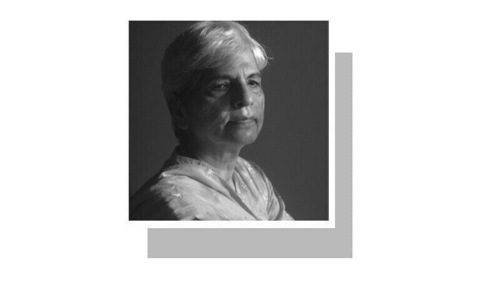IT was in 19th-century Britain that A.V. Dicey wrote that the British parliament is sovereign, and no person or body has the right to override legislation of parliament. Since then, even the courts in England have watered down the absolute and extreme terms of the theory and called it ‘out of place’ in modern times.
While our constitutional dispensation is wholly distinct, the present government is adopting Diceyan concepts of sovereignty. The 1973 Constitution was adopted by the people of Pakistan, and provides at the outset ‘we the people’ give to ourselves this Constitution. It is the people’s document that reigns supreme.
The Constitution creates and establishes a balance between the role of the judiciary, executive, and legislature. The government seeks desperately to upset this balance by undermining judicial independence, and demanding judicial obedience.
The unique part of our Constitution is the status afforded to fundamental rights and judicial independence. Any law inconsistent with fundamental rights shall be void. Democracy, fundamental rights, parliamentary form of government, and an independent judiciary have also been declared as salient features of the Constitution. Per past precedent, even any constitutional amendment to the extent that it violates such salient features shall be struck down.
Fundamental rights and an independent judiciary work together.
Fundamental rights and an independent judiciary work together, a judiciary that is not independent cannot protect and enforce fundamental rights.
In 2015, the Constitution was amended to allow the trial of civilians by military courts. Justice Qazi Faez Isa (as he was then) struck down the constitutional amendment, and held: “the people made it absolutely clear that they did not want their representatives to dilute their fundamental rights”. As regards judicial independence and separation of powers, he found that judicial power can only be exercised by the judiciary.
On the 1973 Constitution, he held that unlike the ones before it, the Constitution endures: “the 1973 Constitution has grown in stature and has found acceptance in the hearts and minds of the people of Pakistan so much so that even the onslaughts on democracy and the judiciary by Gen Ziaul Haq and Gen Pervez Musharraf could not dislodge it.”
At that time, Justice Isa was not swayed by the fact that two-thirds of both Houses had passed the amendments. The government of today tries to apply faulty principles of sovereignty to justify its attempted destruction of judicial independence, and continued wreckage of democracy and fundamental rights.
Despite express and specific directions, implementation of the reserved seats order is being obstructed. Amendments to the election laws were bulldozed through parliament with the singular purpose of undoing the reserved seats verdict. The ruling alliance wants to impose on the people an unrepresentative legislature.
In granting PTI reserved seats, the court interpreted constitutional provisions. This cannot be undone through ordinary legislation. Bizarrely, the amendments have been given retrospective effect. A political party cannot be asked to comply with requirements which, put simply, did not exist at the time of elections.
Then, through a rushed ordinance which was approved by the cabinet, the Supreme Court (Practice and Procedure) Act, 2023, has been amended. The most striking part of the amendment is that bench constitution power now vests with the chief justice of Pakistan, the next senior most judge, and a CJP nominee.
During hearings regarding the validity of the law, Justice Munib Akhtar said the effect would be to make parliament ‘master of the roster’. The court had surrendered its independence and autonomy in so far as its internal procedure was concerned. By su-cceeding in their endeavour to exclude Justice Akhtar from the bench-making process, the government has completely vindicated his dissent.
Finally, the proposed constitutional amendments have been partly defended by the law minister. It was Justice Munir who borrowed Hans Kelsen’s view that a successful coup d’état “was an internationally recognised method of changing a constitution”, thus the doctrine of necessity was given birth in our jurisprudence, and devastating years followed.
The idea of one centralised constitutional court is also a Kelsenian one, and he championed a single exclusive institution to deal with all constitutional questions (a concept the government is trying to transplant into our common law jurisdiction).
The legislature, in the words of Quaid-i-Azam, has the “gravest responsibility” as to how it takes decisions. Instead, attempts are being made to engineer a two-thirds majority; to make independent judges powerless; and to create an institution that would make the Supreme Court redundant. This should unite us all.
The writer is a barrister.
X: @RidaHosain
Published in Dawn, September 25th, 2024













































